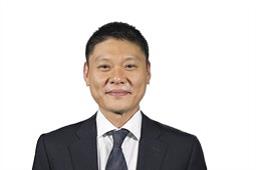IMBA Open Class- International Business Law
Time
Location : Shanghai
Shanghai Jiao Tong University, Antai College of Economics and Management (SJTU ACEM) is widely recognized as one of China's leading business colleges, and draws upon its century-long legacy of academic leadership in China. Today, Antai’s MBA programs continue to receive extensive domestic and international recognition. Antai’s MBA was ranked 55th overall in the highly-recognized Financial Times 2015 Global MBA Ranking, and has improved from 77th in 2014. And the graduates employment rate and salary increase rate topped again in the list.. Additionally, Antai was the first business college in China to be triply accredited by AACSB, EQUIS, and the Association of MBAs. Domestically, Antai is consistently ranked among the top four business schools in China by major business school ranking publications.
Antai offers both a full-time International MBA (IMBA) in English, and part-time MBA programs in Chinese. The Antai IMBA offers classes taught completely in English, and weekly Chinese classes are offered free of charge for three hours per week. Antai professors are respected experts in their fields, with rich experience in top universities and corporations around the world. They provide students within an international perspective while focusing on China, and integrate elements of Chinese and Western culture and business practices through case studies and group projects dealing with both international and local businesses. Antai IMBA students come from a variety of countries and backgrounds, making for a globally diverse cohort. Students may also participate in semester-long exchange to one of our many partner schools around the world.
Open Class Topic: International Business Law
Lecturer: Professor Chin Leng Lim
Time: 8:30am on June 15, 2015
Venue: Xuhui Campus, Shanghai Jiao Tong University
Reservation: Please click "Join Us" above or scan the QR code below.
Tel:86-21-52302513 E-mail: askmba@sjtu.edu.cn
Lecturer Background

Chin Leng Lim is a Professor of Law at Hong Kong University, a member of the Hong Kong Committee for Pacific Economic Cooperation tasked to advise the HKSAR Secretary for Commerce and Economic Development, a practising commercial barrister at Keating Chambers, London, a member of the Singapore Bar and Fellow of the Singapore Institute of Arbitrators.
Following an early career as a law teacher in the United Kingdom, Prof. Lim moved from London University's Queen Mary & Westfield College to United Nations Headquarters in Geneva as an international lawyer handling Iraqi war reparations and servicing the Security Council members. Prof. Lim then returned to law teaching in Singapore during which he was also a member of the Attorney-General's Chambers. Amongst other things, he was Singapore's counsel in its commercial treaty negotiations. Prof. Lim continue to be engaged with commercial treaty matters by providing external support, including support during stakeholder meetings of the Trans-Pacific Partnership treaty negotiations, and to the HKSAR's Central Policy Unit, APEC, the WTO, and UNESCAP.
Prof. Lim’s latest speaking engagements have taken place at the invitation of the UK FCO, the European Commission and the World Trade Organization. Other recent engagements include talks delivered at the PECC-ADB Conference, the Conference on European and Global Economic Governance in Brussels, the University of Geneva, Peking University, Harvard, the Fletcher School, Tillar House in D.C., Melbourne University, and during meetings of the NY State Bar Association and the American Society of International Law.
Prof. Lim’s views on international trade regulation have been reported by CNN, Forbes, Reuters, the International Herald Tribune, Chicago Tribune, Guardian, Economist magazine, Asahi Shimbun, Taipei Times, and Al Arabiya.
Course Description
To help course participants understand the legal regulation of cross-border business in a practical setting. The course consists of roughly 10 case studies, observing the legal problems which a business confronts as it “evolves” from handling direct sales, through to indirect sales, technology licensing and cross-border investment. These legal problems cover contracts for international sales, basic sales financing, international commercial disputes in both domestic courts and before international commercial arbitral tribunals, indirect sales through agents and distributors, technology licensing, patent protection, competition regulation, the law regulating investors and host countries, and contractual issues in project finance. Participants should expect significant exposure to US, European and international laws and practices with occasional, specific references to the laws of England, Hong Kong, Singapore, etc.
Scan here:
QR Code 


